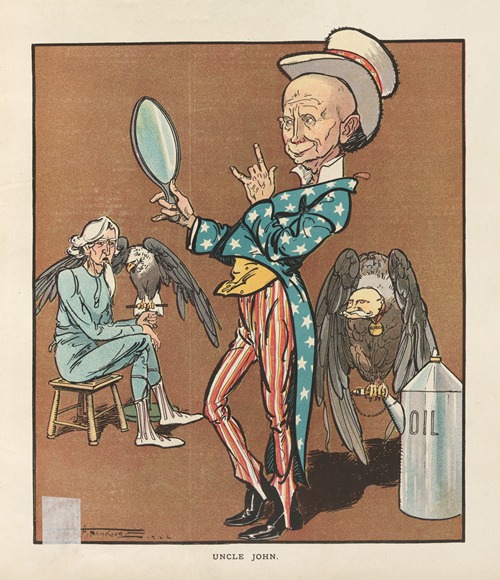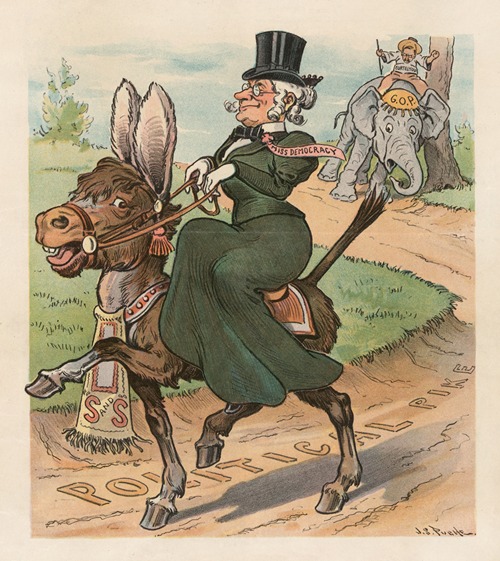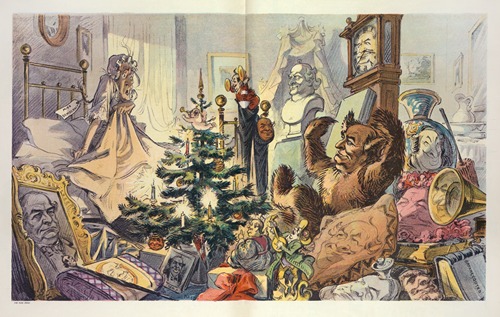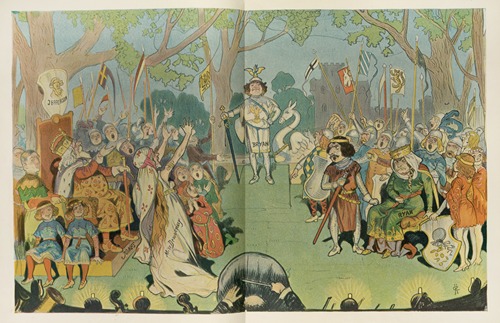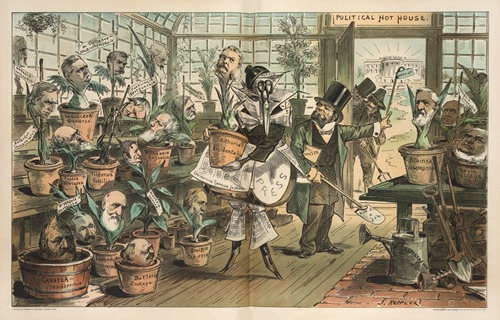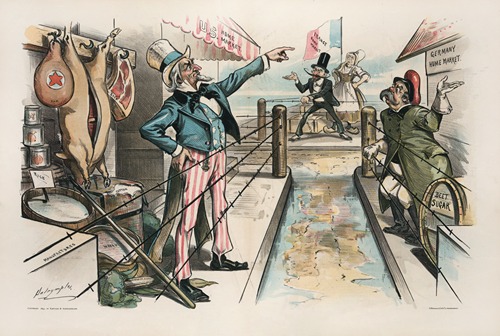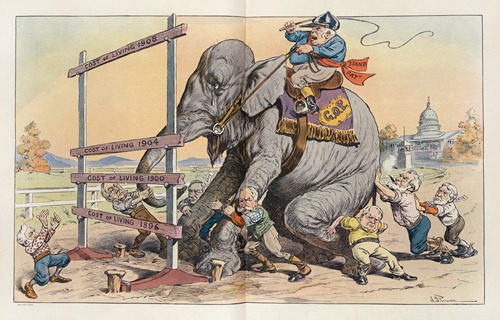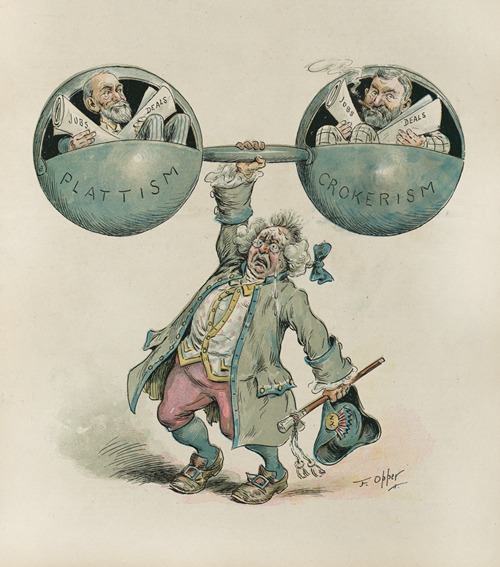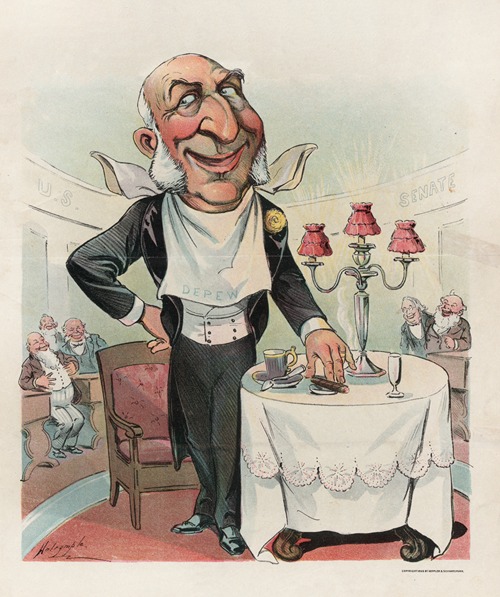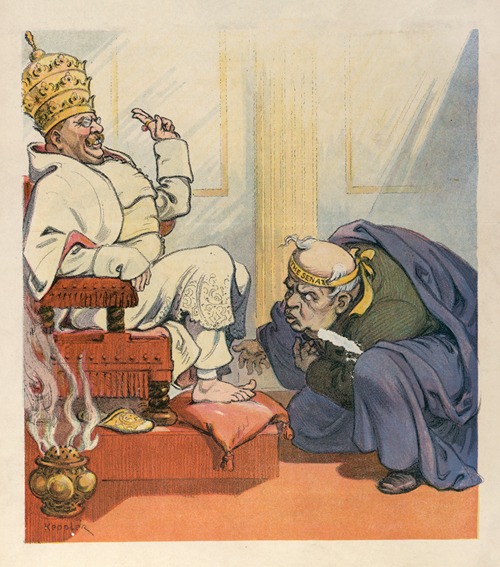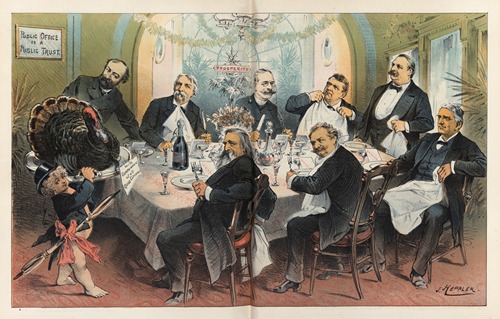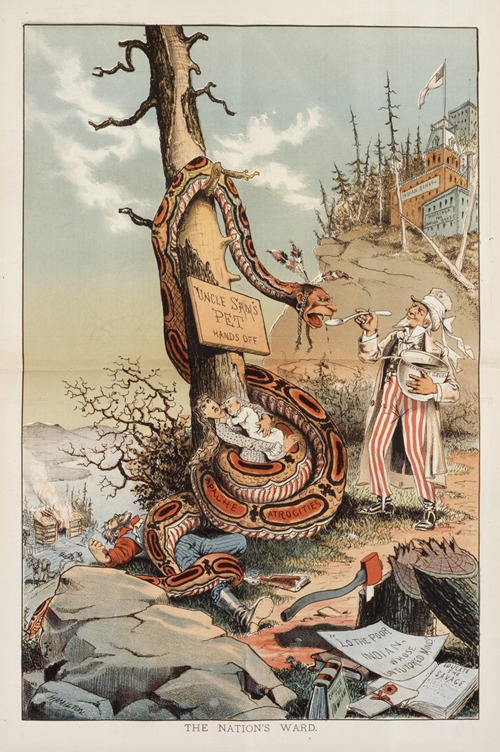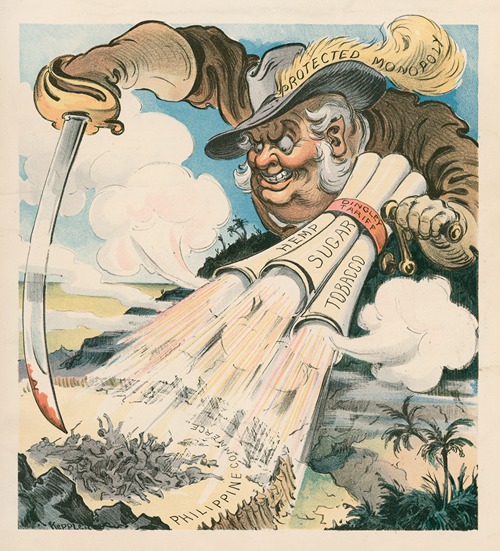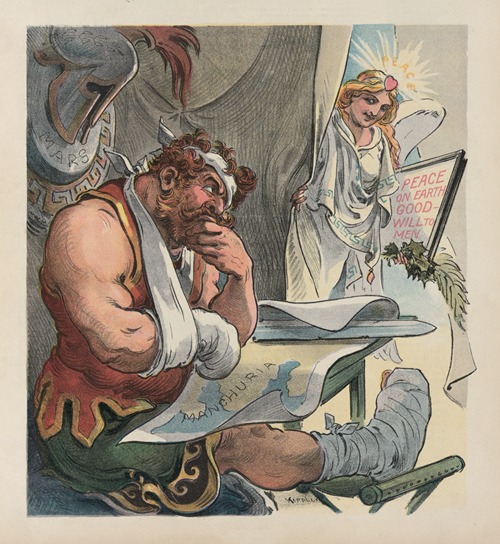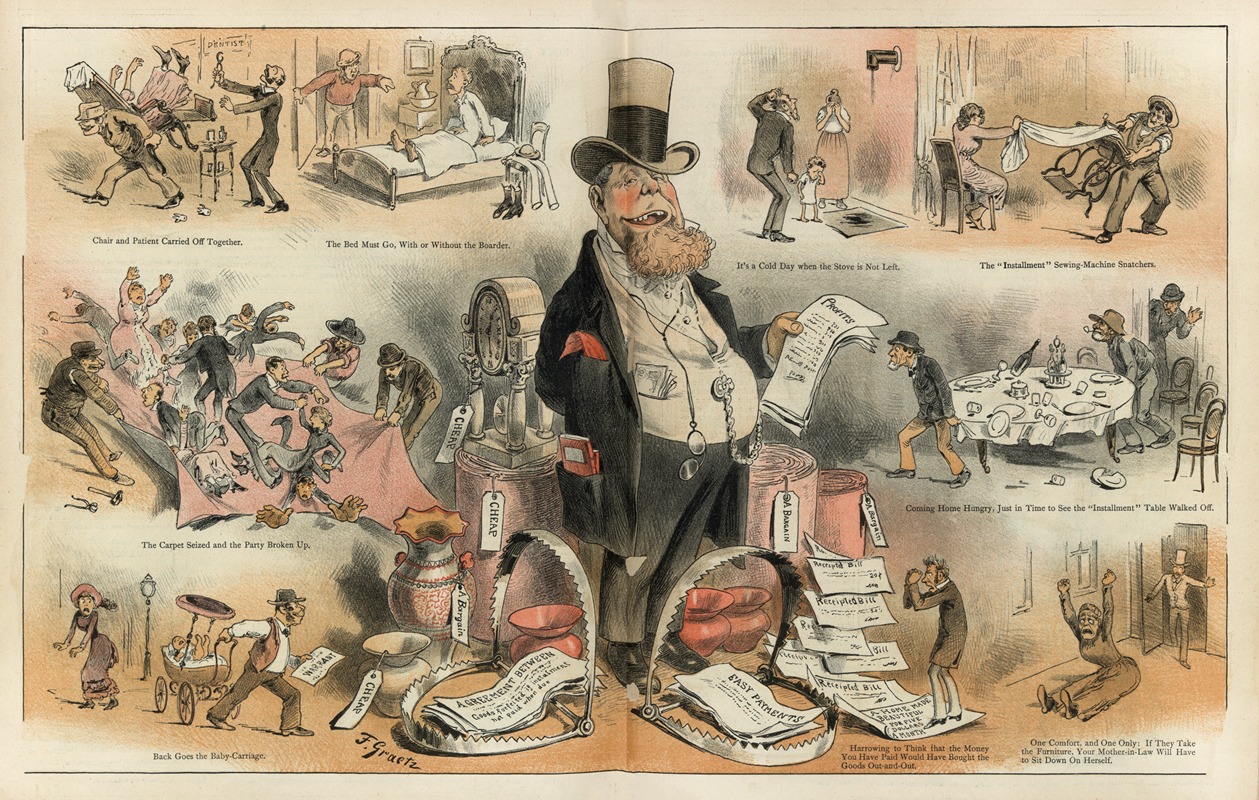
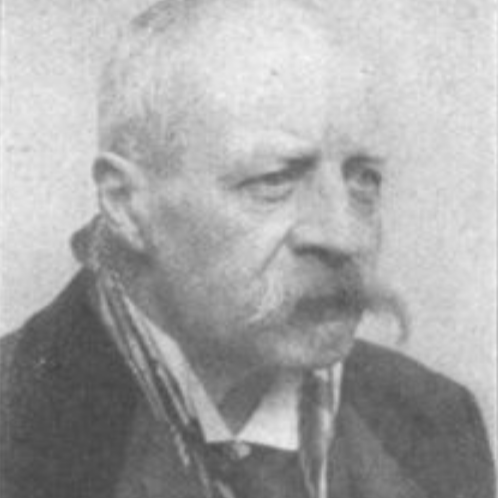
Friedrich Graetz or Grätz was an Austrian illustrator and cartoonist. His best-known works appeared in Viennese satirical magazines such as Kikeriki and Der Floh, and in the American magazine Puck. Puck was the first magazine to print cartoons in color. Many of Graetz's cartoons were political, targeting issues of government responsibility and public health and urging social change.
Graetz studied art in Frankfurt am Main with Eduard von Steinle. In 1867 Graetz came to Vienna, spending time also in Budapest.
Graetz worked for the satirical weekly Kikeriki ("Cock-a-doodle-doo") in Vienna between 1872 and 1875, and for Der Floh ("The Flea"), also in Vienna, beginning in 1875. Both magazines were printed by the publishing house Johann Nepomuk Vernay.
Kikeriki was edited by Ottokar Franz Ebersberg, under the pseudonym O. F. Berg. In its early years, Kikeriki used humour to critique authority and call for social change. It has been suggested that over time humour in Kikeriki and other Viennese newspapers shifted, becoming less an appeal to improve city life, and more an attempt to cope with its stresses by "keeping up a cheerful spirit". Their humour also became increasingly distanced and negative toward marginalized groups, including women and Jewish people.
Graetz was hired by Joseph Keppler on a three-year contract, to work for the popular magazine Puck in New York. Keppler, who was also from Austria, established the German-language magazine in 1871, publishing the first English-language edition in 1877. Graetz's illustrations appear in Puck between March 1882 and March 1885. Graetz's images, like those of Joseph Keppler and Carl Edler von Stur in Puck, depict complex scenes in which a number of characters are involved in unfolding action.
In Puck, as in the early Kikeriki, humor was intentionally used to press for both political and social change. Topics reflected the interests and political positions of Keppler and other senior staff, and Keppler closely reviewed others' work before it went to publication, influencing both content and style with "a strong guiding hand". Among the areas of public health addressed by Friedrich Graetz's cartoons in Puck are unsanitary conditions; disease, quarantine and immigration; and adulteration of foodstuffs.
Eugene Zimmerman recalls Graetz as "an elderly gentleman with short-cropped hair and abundant red whiskers." Zimmerman considered Graetz to be "an excellent pen-and-ink artist but too careful in detail for an American comic paper". Graetz was unfamiliar with American politics, and was often given topics dealing with international affairs. Because he spoke little or no English, proposed work had to be described to him extremely precisely by a German-speaking staff member. While Keppler was travelling abroad for six months in 1883, Zimmerman acted as Graetz's translator.
Over time, Graetz drew fewer lithographs. Zimmermam became increasingly skilled, and was seen by Keppler and his partner Adolph Schwarzmann as a possible replacement. Keppler, however, felt uncomfortable about firing his friend. According to Zimmerman, when it was time to renew Graetz's contract, the proprietors of Puck proposed to cut Graetz's salary in half. Humiliated, he chose to leave and return to Europe. A few months later, Zimmerman left Puck as well.
By 1892 Graetz was again working in Vienna, where he drew for several magazines including Figaro, Der Floh ("The Flea") (1891–1913), and the worker's paper Neue Glühlichter ("New Incandescent Light").
